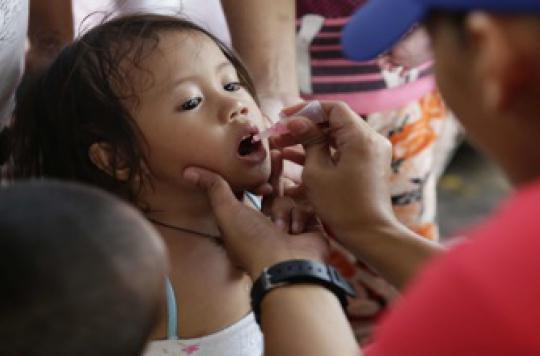The World Health Organization reports a dramatic drop in the mortality and prevalence of measles worldwide. But efforts still need to be made in many countries.

Nearly 450,000 fewer measles deaths since 2000, a drop of 78% and almost as much for the number of new cases. This is the balance sheet of theWorld Health Organization (WHO) on measles vaccination, published February 6. This news is all the more positive given that estimates suggest 13.8 million deaths avoided over the same period.
WHO welcomes the continued progress in measles immunization coverage around the world. The first dose is administered in 83% of cases worldwide and the second dose is routine in many countries. More than a billion children have benefited from vaccination since the turn of the millennium. The report salutes the “good students” of this assessment: the region of the Americas, which has succeeded in eradicating measles, and the Western Pacific, which is approaching the official target: 95% fewer cases by 2015 .
5 out of 6 regions are still threatened
But measles remains a threat in the world: 5 of the 6 WHO regions are still under vaccinated. Epidemic outbreaks regularly emerge there. The Africa region obtains the worst results: it is the continent where the fewest children are vaccinated. Europe and the Eastern Mediterranean are also at risk of falling short of the targets set by the WHO. France is approaching it, but experienced a worrying peak in 2011 with nearly 15,000 cases. Since then, the number of infected people has plummeted: 859 cases in 2012, 272 in 2013. But vaccination coverage remains poor, including in the adult population, where the fatal danger of the disease is the highest.
The most impressive measles outbreaks do not concern countries in crisis: the Democratic Republic of Congo experienced more than 72,000 cases in 2012, India more than 18,500 and Ukraine nearly 13,000. The Mediterranean region Eastern remains problematic with 8,000 cases in Somalia, Sudan and Pakistan. WHO stresses the importance of promoting routine immunization and mass campaigns. But some countries like Pakistan refuse to use it.
.















